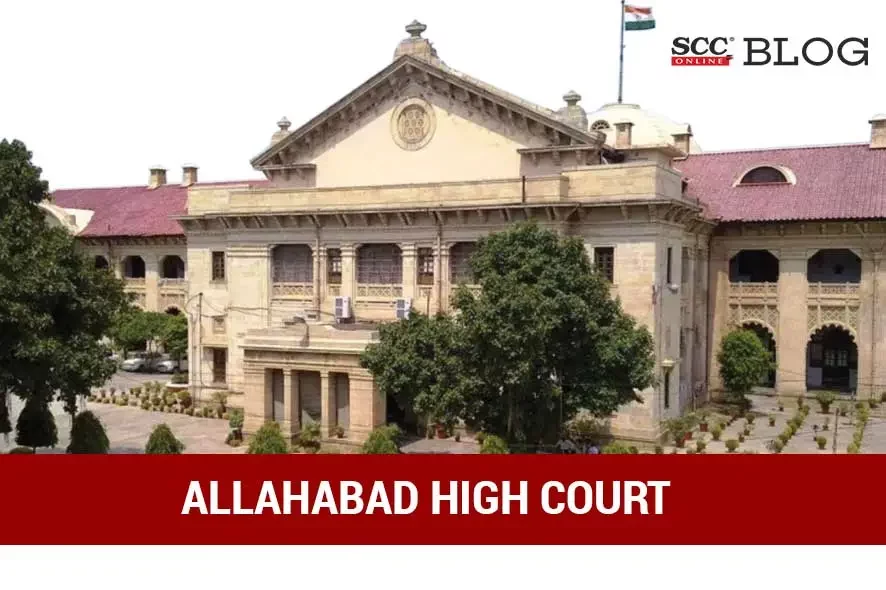Allahabad High Court: In an application filed under Section 482 of the Code of Criminal Procedure, 1973 (‘CrPC’), to quash the order passed by Additional District and Sessions Judge in Special Sessions Trial as it was alleged that the summons were issued without application of judicial mind, solely relying upon the statement of the victim under Section 164 CrPC even though from the material collected by the Investigating Officer, no prima facie case was made out against the accused and even his name did not appear in the FIR, or in victim’s statement under Section 161 CrPC, Manju Rani Chauhan, J said that to summon persons upon taking cognizance of an offence, the Magistrate has to examine the materials available before him, to come to the conclusion that apart from those sent by the police, some other persons are involved in the offence. These materials need not remain confined to the police report, charge sheet or the FIR. Thus, the Court dismissed the application.
The Court referred to Sections 190(1)(b) CrPC and finds that the said Section does not lay down that a Magistrate can take cognizance of an offence only if the investigating officer gives an opinion that the investigation has made out a case against the accused. The Magistrate can ignore the conclusion arrived at by the investigating officer and independently apply his mind to the facts emerging from the investigation and take cognizance of the case, if he thinks fit, exercise his powers under Section 190(1)(b) and direct the issue of process to the accused.
The Court further accepted the contention of the victim, that prima facie case for the alleged offence is made out against the accused.
It also observed that the victim with whom such an incident has happened, is in a sense of shock and not in a state of mind to tell the details of incident in a proper manner. There are minor contradictions, which cannot be seen here. The accused shall have ample opportunity to prove his innocence during trial, as such the allegations made against him cannot be shifted at this stage. At the time of taking cognizance, the Magistrate has only to see whether prima facie cogent reasons are there for issuing the process.
The Court said that cognizance of the offence can be taken based on the police reports as envisaged in Clause (b) of Section 190(1) CrPC irrespective of the opinion of the Investigating Officer that prima facie no case is made out, if the material collected and the statements of the witnesses recorded under Section 161 CrPC, in the opinion of the Magistrate, are sufficient to make out a prima facie case against the accused persons.
Thus, the Court said that the position is well settled that upon receipt of a police report under Section 173(2), a Magistrate is entitled to take cognizance of an offence under Section 190(1)(b) CrPC, even if the police report is to the effect that no case is made out against the accused. The Magistrate can take into account the statements of the witnesses examined by the police during the investigation and take cognizance of the offence complained of and order the issuance of process to the accused.
The Court further reiterated that once a final report is submitted against some body and simultaneously a charge sheet is submitted against the others, if the Magistrate takes cognizance on the basis of the charge sheet and accepts the final report, a protest petition will lie and if such protest petition has all the ingredients mentioned in Section 2(d) of CrPC, it can be treated as a complaint and proceedings of complaint case may go on involving Sections 200 and 202 CrPC. The Magistrate can then pass an order according to the law.
However, where the charge-sheet has been submitted against few accused and others have been exonerated, the Magistrate is not bound by the conclusion of the Investigating Officer and he, after applying his judicial, mind can proceed to issue process on the de facto complainant’s application.
Further, the Court said that interference by the High Court under Section 482 CrPC is to prevent the abuse of process of any law or Court or otherwise to secure the ends of justice. It is settled law that the evidence produced by the accused in his defence cannot be looked into by the Court, except in very exceptional circumstances, at the initial stage of the criminal proceedings.
Thus, the Court reiterated that if a prima facie case is made out disclosing the ingredients of the offence alleged against the accused, the Court cannot quash a criminal proceeding.
The Court said that the submissions of the accused to call for adjudication on pure disputed questions of fact which may adequately be adjudicated upon only by the Trial Court, is not proper, and it cannot be persuaded to have a pre-trial before the actual trial begins. Thus, the Court refused the prayer for quashing the entire proceedings.
The Court said that summoning the accused based on the statement under Section 164 CrPC, the Magistrate acted, based on an independent application filed by the de facto complainant and found that there was sufficient material before him although his name did not find place in the charge-sheet. Thus, to summon persons upon taking cognizance of an offence, the Magistrate has to examine the materials available before him, to come to the conclusion that apart from those sent up by the police, some other persons are involved in the offence. These materials need not remain confined to the police report, charge sheet or the FIR. Thus, the Court dismissed the application.
[Asif Ahmad Siddiqui v State of UP, 2023 SCC OnLine All 157, Order dated 26-04-2023]
Advocates who appeared in this case :
Counsel for Applicant/Accused: Advocate Dr. C.P. Upadhyay;
Counsel for Opposite Party: Government Advocate Harbansh Prasad Pandey.







